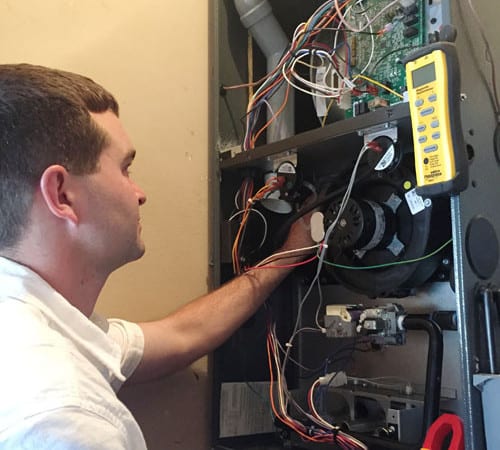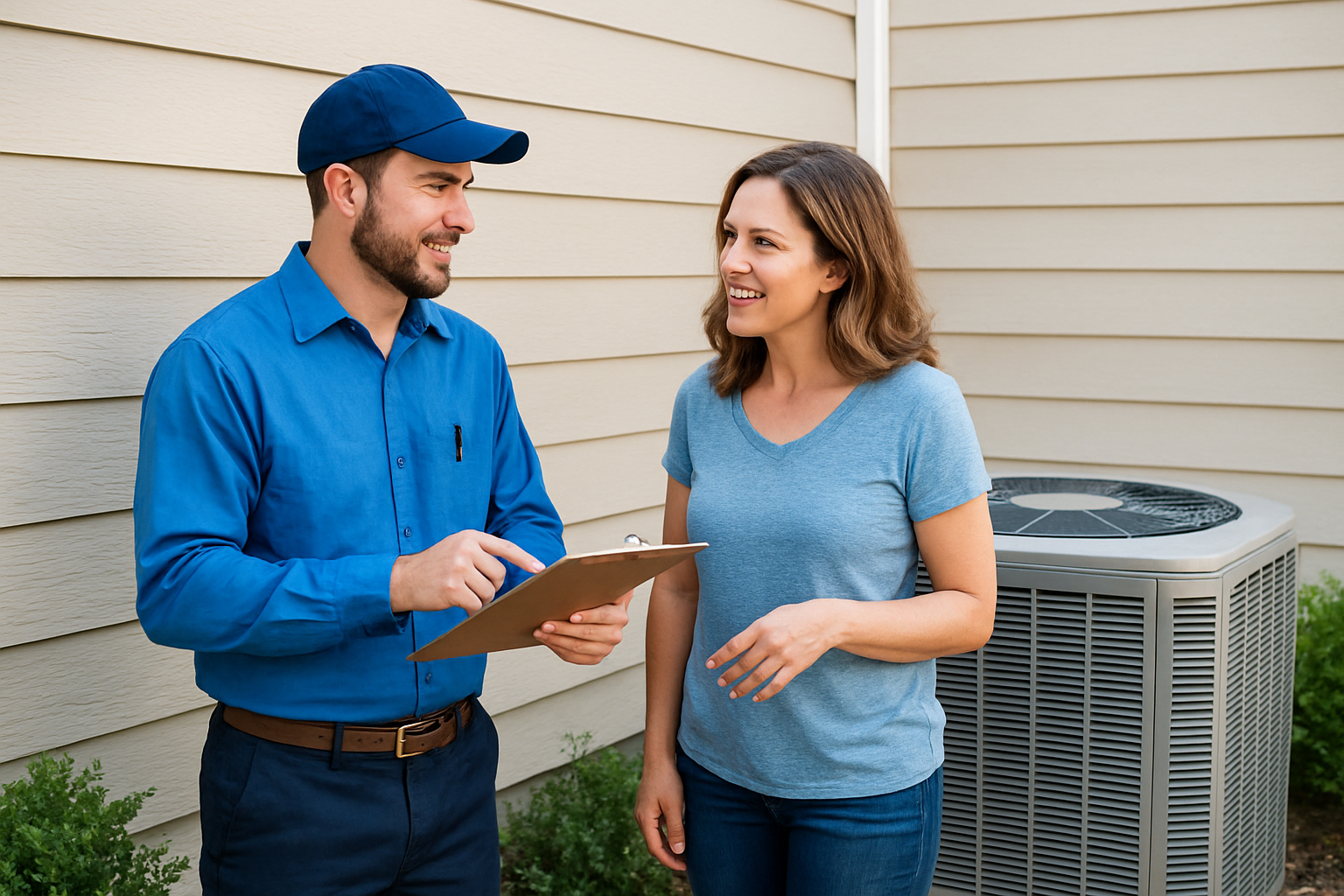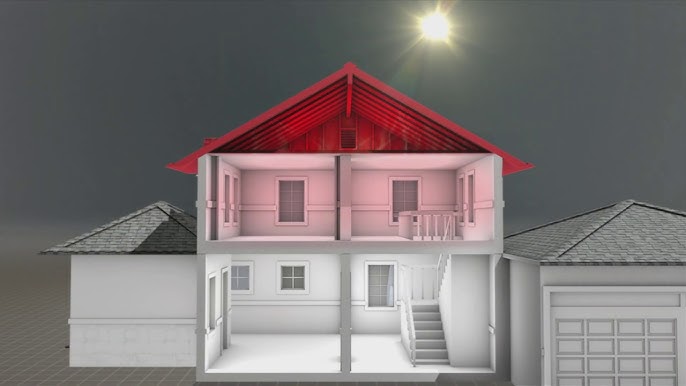
When you invest into maintenance Commercial HVAC systems it will be great for businesses, cooling buildings down during the warm Los Angeles spring and summer, while ensuring year-round fresh air in all seasons including fall and winter. They keep staff and clients comfortable, and help keep productivity levels up -- but maintenance is a must-do task.
Benefits of Regular Maintenance
Regular up keep of a commercial HVAC system can help to detect small problems and fix them before they become major, expensive disasters. Routine maintenance commercial HVAC checks also help ensure that the systems' refrigerant is working and that the air ducts are suitably clean.
It's also a cost-saving measure to have a checklist for HVAC maintenance, because a clean, fully functioning system will be a lot more energy efficient and cheaper to operate than a faulty system. Well-maintained HVAC systems also last longer, delaying a potentially expensive replacement.
Cost Savings
Energy-efficient HVAC systems are designed to operate with optimal efficiency, consuming less energy to achieve the same or better performance compared to traditional systems. This translates into lower utility bills over the long term. While the upfront costs of energy-efficient HVAC systems may be higher, their lifecycle costs often turn out to be more favorable. The initial investment is outweighed by the ongoing operational savings, resulting in a positive return on investment. HVAC systems constitute a significant portion of a commercial building's operational expenses. By investing in energy-efficient HVAC systems, businesses can substantially reduce these ongoing costs, contributing to overall financial stability. Furthermore, energy-efficient systems often require less commercial HVAC maintenance and experience fewer breakdowns due to their optimized design. This results in reduced maintenance and commercial HVAC repair costs, further enhancing the financial benefits for businesses.
Environmental Impact
Commercial buildings are major contributors to greenhouse gas emissions, primarily through energy consumption. Energy-efficient HVAC systems help reduce the carbon footprint of these buildings by minimizing the amount of energy required for heating, cooling, and ventilation. This aligns with global efforts to mitigate climate change and reduce the environmental impact of human activities. The environmental impact of HVAC systems also depends on the energy sources powering them. Energy-efficient systems, when combined with clean and renewable energy sources, contribute even further to reducing overall environmental harm.
Regulatory Compliance
Governments and environmental agencies worldwide are implementing stricter regulations to limit carbon emissions and promote energy efficiency. Investing in energy-efficient HVAC systems ensures compliance with these standards, avoiding potential legal consequences and fostering a culture of corporate responsibility.
Improved Indoor Air Quality
Energy-efficient HVAC systems often incorporate advanced ventilation strategies, ensuring a constant supply of fresh air. This not only contributes to occupant comfort but also enhances indoor air quality. Efficient HVAC systems help maintain optimal humidity levels, reducing the risk of mold growth and other indoor air quality issues.
Sustainable Reputation
As consumers and business partners become more environmentally conscious, companies that prioritize energy efficiency are viewed favorably. This positive perception can enhance a business's competitive position in the market, attracting environmentally conscious clients and partners. Energy-efficient practices can serve as a unique selling proposition, setting a business apart from competitors. This differentiation can be particularly valuable in industries where sustainability is a key consideration for stakeholders.
Technological Innovation
Energy-efficient HVAC systems often leverage smart technologies and automation, allowing for better control, monitoring, and optimization of the building's overall energy usage. Energy-efficient HVAC systems often incorporate advanced technologies and are designed to be adaptable to evolving energy standards. Businesses that invest in these systems are better positioned to navigate future regulatory requirements and industry trends, avoiding the need for costly retrofits. Investing in energy-efficient HVAC systems ensures access to the latest technological advancements, future-proofing buildings against evolving energy standards and requirements.
Custom Tailored Maintenance Commercial HVAC Plans
We offer a twice-yearly inspection program where our experts will assess the entire HVAC system and make sure it's operating at its most efficient and will preserve its useful life. One inspection takes place during the spring, the other in the cooler fall months.
There's a host of technical parts in the system that we'll inspect to make sure they're operating correctly. These include the thermostat, the condensate drain line, all of the capacitors that boost the motors in the system, the contractors, the power box, and even the system's evaporator coil where accessible. If there's a fix that must be made, we'll consult with you first before starting work.
Another important item on the checklist is to assess how often to replace the filters that capture the air pollutants, because these are what help ensure the circulated air is kept clean.
The exact type of maintenance commercial HVAC checklist will vary slightly depending on which HVAC system a business is using. Some might have a heat pump package unit where all the parts are housed in one cabinet on the roof, connected through ducts to the building's interior. Alternatively, businesses could use a similar one-unit system that is powered by gas or electricity.
Some businesses also use heat pump split systems divided into three parts: An outdoor unit housing the condenser and compressor, an indoor unit housing the evaporator coil, and an air handler that pushes the conditioned air through the ducts. Or a small mini-split system might be in use, which could require a less-extensive maintenance checklist than other types of HVAC.
Whichever type of commercial HVAC system is in use, we know what to look for.
Does Rain Affect the Air Conditioner?
The outdoor part of an HVAC system is built durably and designed to withstand exposure to rainfall and the outdoor elements throughout the varying seasons of the year. Most of the parts in the outdoor unit are made from aluminum, copper or metal, and the electrical components are sealed to keep them protected from rainfall. Therefore, rain will not cause any harm to the outdoor unit and it is safe to turn your air conditioner or furnace on.
Should Your Outdoor Unit Be Covered?
The outdoor unit has been built to withstand extreme temperatures and any moisture so it is not typically a good idea to cover it since it can cause more harm than good. Any trapped moisture can collect in the cover and lead to corrosion or other damage to the unit. Furthermore, never stack anything on top of the unit, especially when it is on. The outdoor unit needs proper airflow to effectively and efficiently operate.
The importance of maintenance commercial HVAC systems to a business means it's vital to call on the professionals for maintaining the integrity of the air conditioner -- and we're ready to help. Contact us online or call us at (818) 341-3406 to arrange a free consultation. To learn more about services our company offers, please visit our homepage.











































